Sept. 6, 1920: Dempsey, Greb & Langford
It’s now a very rare thing for boxing fans to get genuinely excited about the undercard for a major fight. The preliminaries for big showdowns are often exercises in tedium as fans suffer through a series of largely pointless bouts, the matches invariably offering either limited talent or minimal excitement, or both.
But that was not the case in 1920 in Benton Harbor, Michigan when three of the finest to ever lace up the gloves stepped into the ring, one after the other. In fact, in terms of an assemblage of legendary ring talent, it remains perhaps the best fight card ever staged. No one at the time could have fully appreciated how special the event was, but that’s completely understandable. In terms of elite, Hall of Fame pugilists, fight fans in the 1920’s were spoiled rotten.
First up, the immortal Sam Langford, without question one of the greatest boxers of all-time, pound-for-pound, and arguably the best to never win a world title. For the fans at Benton Harbor, Langford took on Big Bill Tate in a hard-fought six rounder. In 1920, and for more than a decade after, “The Color Line” as they liked to call it (the phrase having a nicer ring to it than “The Bigotry Line” or “The KKK Line”), was closely observed due to the trauma Jack Johnson‘s championship reign had inflicted on white America. White and black heavyweights rarely faced one another as a result; it was just too damn stressful for everyone.
Langford and Tate were, like Harry Wills, Joe Jeannette, Jeff Clark and Sam McVea, in a group of highly talented black heavyweights who never received the opportunities they richly deserved and instead were forced to repeatedly battle one another, a sort of Negro League of boxing, if you will. Tate was a huge heavyweight for that time, over six-and-a-half feet tall and weighing more than 220 pounds. He was also one of Jack Dempsey’s preferred sparring partners.

Tate and Langford ultimately fought ten times and this was their sixth meeting. Langford ended up winning the series with five victories against four losses and a draw, but the fact Langford won any of their contests is clear testament to “The Boston Terror’s” ring genius as he gave away huge advantages to Tate in height, reach and weight. On this occasion, the six round newspaper decision went to Tate “by a shade,” according to both the Bismarck and Chicago Tribunes.
Next up, the great Harry Greb, with little doubt the best middleweight ever and one of the ten best boxers of all-time, pound-for-pound. His opponent, Chuck Wiggins, otherwise known as “The Hoosier Playboy,” was no pushover either. Wiggins proved a durable heavyweight, giving greats Tommy Loughran and Gene Tunney tough battles before he was through. He faced “The Smoke City Wildcat” at least eight times and while Wiggins never came close to defeating the great Greb, he did give him more than a bit of trouble on a few occasions and this was one of them.
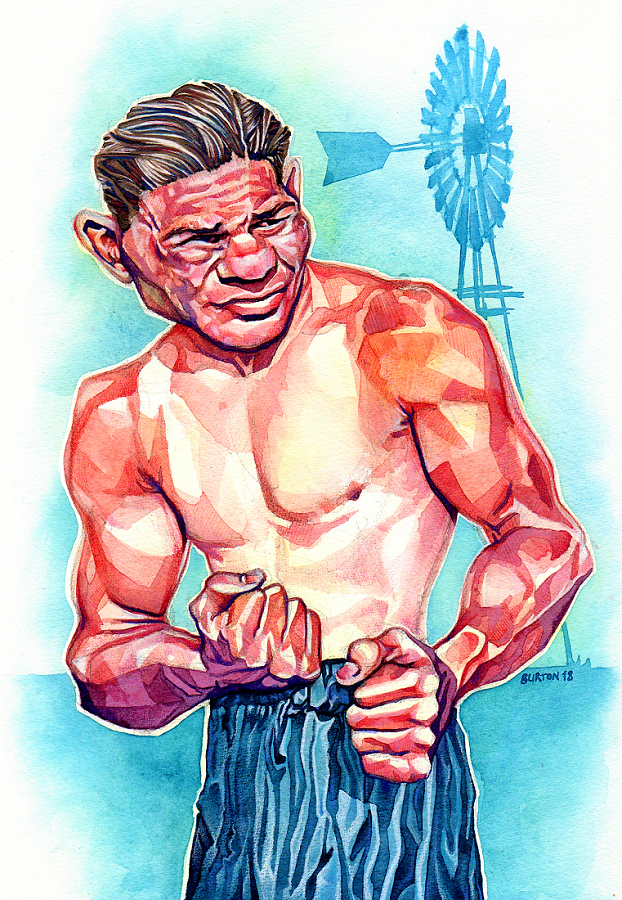
For this meeting, Wiggins tested a new strategy for facing the human thresher machine that was Greb: recklessly leaping at his opponent and throwing wild punches in order to prevent Greb from imposing his trademark swirling, swarming style. It troubled Harry for about three rounds before he started timing his larger opponent and finding openings to attack. The last several rounds belonged to “The Pittsburgh Windmill” and the smaller man once again proved superior. As we all know, Greb would establish himself as one of the greatest of all time before his untimely death in 1926. Less well known is the fact “The Hoosier Playboy” fought for another decade before embarking on a long career of thrilling bouts with the Indianapolis police.
Finally, the main event: Jack Dempsey defending, for the first time, the heavyweight title he had taken from Jess Willard over a year before. His opponent was Billy Miske and the fight was nothing exceptional, though the story behind it is. “The Manassa Mauler” knocked “The St. Paul Thunderbolt” down three times, the last for the count in the third round. These were the first knockdowns of Miske’s career but his sudden vulnerability was due not entirely to Dempsey’s thunderous power.
Miske’s terrible secret was he was slowly dying of kidney failure, but he had to keep fighting to pay off his debts and support his family. He had been diagnosed two years previous, and while there were rumors regarding his declining health, the sad truth would not fully emerge until after Miske’s death. Incredibly, Miske would have another 23 matches after this loss, winning all but two, before he finally succumbed on New Year’s Day, 1924. “Billy Miske and Benton Harbor,” Dempsey would later say. “Well, I wish it never happened.”
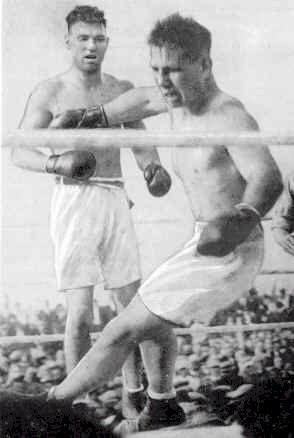
That Labor Day card was the first of many successful big events engineered by the team of Dempsey, his manager Jack Kearns, and genius promoter Tex Rickard. Together, over the next several years, they made boatloads of money. But one of the most intriguing facets of this event was how it renewed talk of a Dempsey vs Greb confrontation, a dream fight if there ever was one, and a clash that likely would have been just as huge as the following year’s Dempsey vs Carpentier battle, the first ever million-dollar gate.
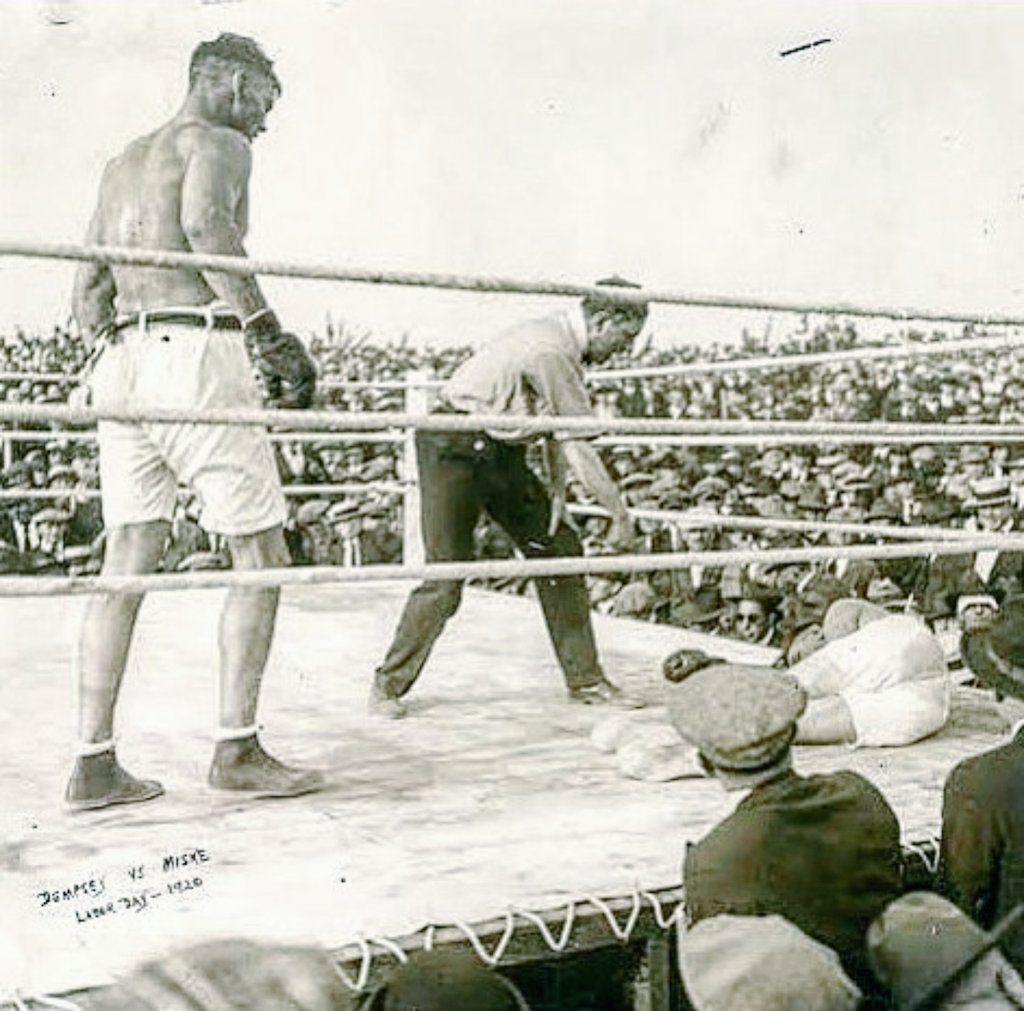
And yet the bout never came off. No one will ever know for certain why this dream fight never happened, but a fact that can’t be overlooked is that a few days prior to the Benton Harbor card, in a bid to further drum up interest, Greb and Dempsey sparred several rounds for the public. As no less an authority than The New York Times reported: “Dempsey could do but little with the speedy light heavyweight, while Greb seemed to be able to hit Dempsey almost at will.”
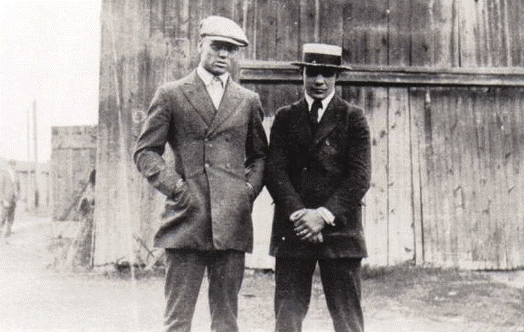
And yet, who knows, it’s just as likely that, given the chance, Sam Langford would have whipped them both. (In fact, Dempsey is on record as stating that Langford “probably would have knocked me out.”) Or Dempsey might have proven too much for Langford. Or Greb would have overwhelmed the other two — we can only speculate. Three all-time greats and a trio of amazing matches that, unfortunately, never happened. The next best thing took place over a century ago when all three ring legends competed on the same September afternoon. — Michael Carbert

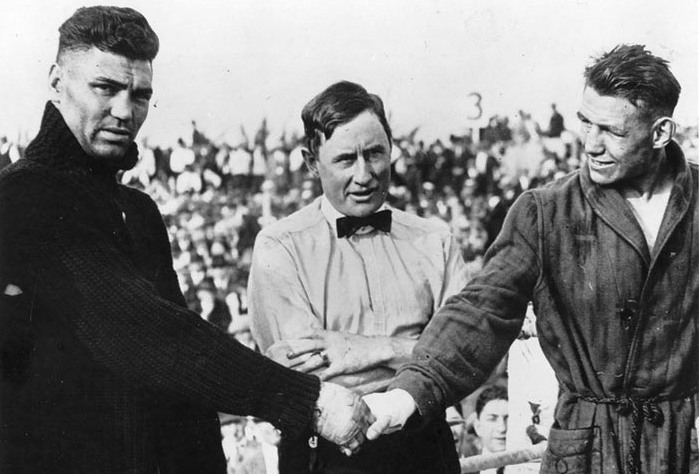
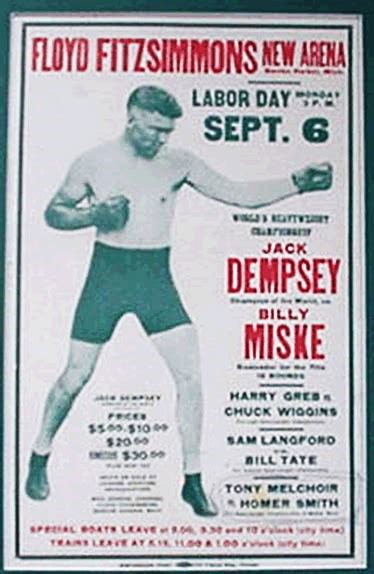

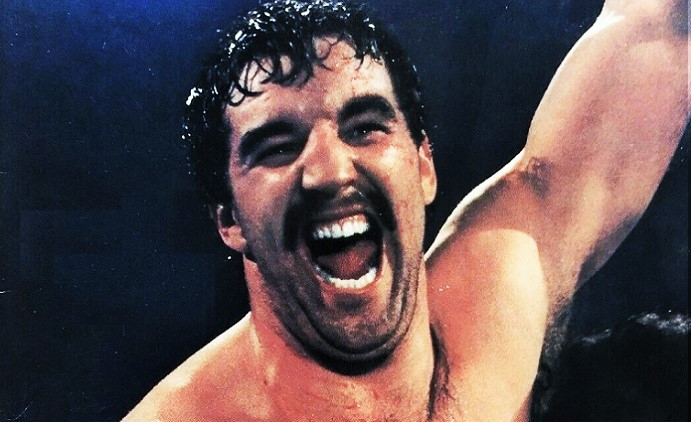
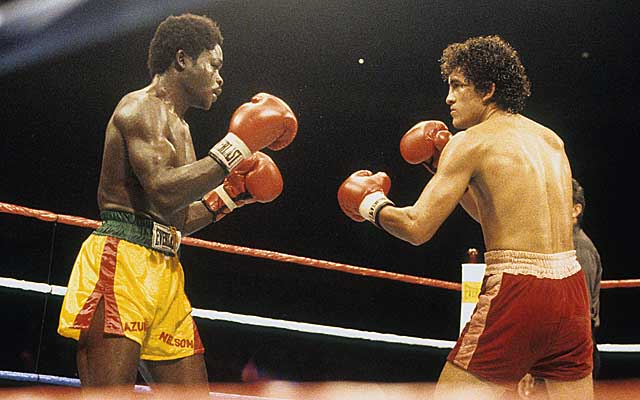
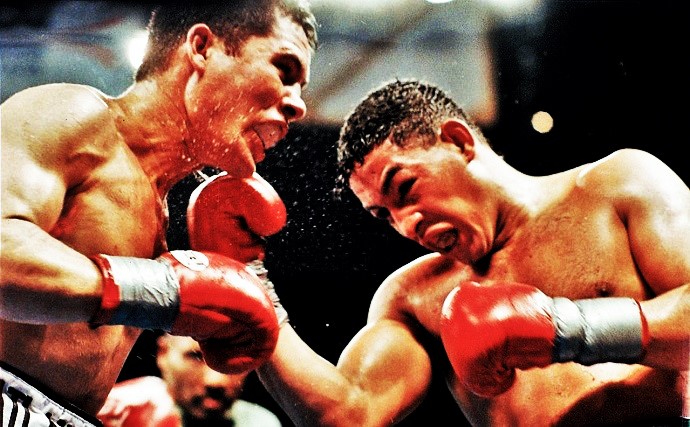
Great article. I think a bigger fight that was in demand was Dempsey vs Harry Wills. Of course Tex Rickard refused to make the fight.
True, Dempsey and Kearns both agreed to the fight with Wills… Damned Rickard.
That picture of Dempsey and Greb gives me some of the coldest chills. Two of the toughest, most savage boxers the world has ever known.
Greb would’ve beat Dempsey for all the talk of Dempsey being an animal and all..Imo he was a afraid of Greb.
No way. Greb himself said that after 6 rounds Dempsey would kill him.
He never said that.
Show me the quote.
He said it in 1926, and it was five rounds, not six. His words in an interview a few months before his death.
What a great article on all these legendary fighters! The money these fighters would be making now. An era that will never be seen again!
Dempsey said that you never know about a fight, things can happen.
Regard Langford as greatest of all pound for pound. If these three had met at their respective peaks .